I’ve had the privilege of doing a study abroad program three different times in places like Mexico, Australia, and the UK. Each study abroad trip was absolutely worth it to me and I took an incredible amount of value from those experiences that still shapes me to this day. With that said, there are definitely some things that you want to know about studying abroad before you do it.
In this article, I will tell you everything you need to know about studying aboard. I’ll cover how to choose (and find) the right program, internships, housing, insurance, and how to get the most from your experience.
Table of Contents
Visa and travel documents
The very first thing you need to know is whether or not you will need a travel visa or other travel documents (in addition to your passport) to get into the country and to stay there for your study abroad program.
In some cases, you could simply use a tourist visa but in other cases you may have to get a specific visa (such as a student visa) depending on how long you’re staying there and what exactly you are doing. Generally, if you’re there for under 90 days, you won’t need a visa but always double check.
Some other things you should note about student visas:
- Many student visas will allow you to work part time so you can still earn some money while studying abroad.
- Sometimes you can extend the student visas if you get some sort of internship after your program.
- If you have a spouse, a student visa can sometimes get them into the country and allow them to work.
- You may need to submit biometrics.
- Some visas will require a sponsorship letter and/or showing of funds in a bank account for a period of time, so don’t wait until the last minute to apply for your visa.
The study abroad program should be able to guide you on all the questions related to your visa, but I would also encourage you to do your own personal research just in case you’re going with a program that does not have the most up-to-date or accurate information. This is especially the case if you were doing this on a solo basis.
- You can check this page for additional information on whether or not you need a visa for your location.
- You can also check here.
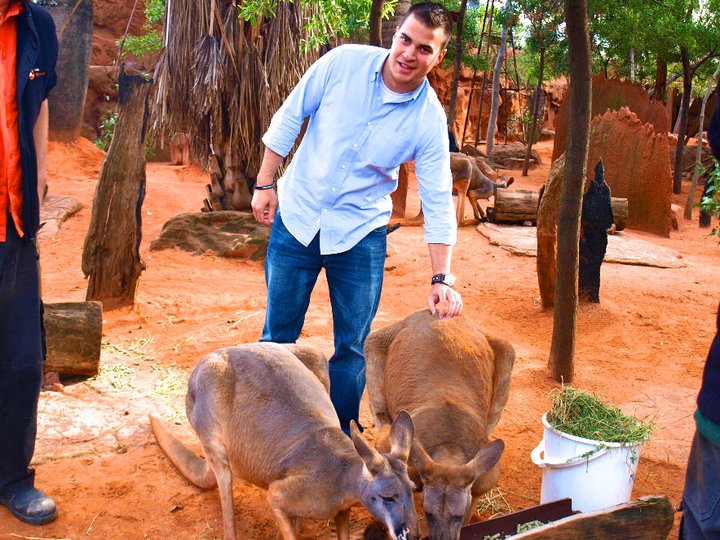
Tip: Use the free app WalletFlo to help you travel the world for free by finding the best travel credit cards and promotions!
Study abroad programs
The first major consideration is what study abroad program are you going to enroll in?
Of course, you should check with your college or university to see what type of study abroad programs are offered. However, don’t be opposed to shopping around to see what other colleges and universities have to offer.
When I was in college and graduate school I actually did two separate study abroad programs through two universities that were not associated with mine. This allowed me to enroll in cheaper programs and in some cases the academic work was not as rigorous so I had a less stressful experience.
You can click here to search for study abroad programs with other universities. But I would also advise you to just check online and call around to nearby universities and colleges so that you can actually go in person and talk to someone about their programs. Some programs fill up pretty quickly so don’t make this a last-minute decision.
Below are some considerations that you want to think about when choosing a program.
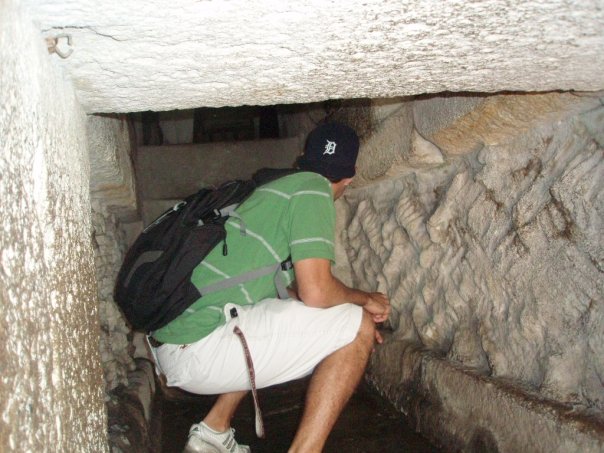
Picking a subject
When choosing a study abroad program, it is a good idea to have a narrow focus on the subject (or subjects) that you want to focus on.
It is very common for study abroad programs to be focused on foreign languages. Obviously, the language focus will usually be on whatever is predominantly spoken in that country. So for example if you go to study abroad in Spain chances are you will be trying to pick up Spanish. There is also usually a historical or cultural component to these language based programs, too.
Tip: If you don’t know exactly how your study abroad experience will fit into your future career goals, then I would suggest to just go with the language that you’re interested in learning about.
In addition to language programs, there can be a focused curriculum that is based on your major or concentration. So for example you might get a focus on history, art, philosophy, or perhaps even something technical. This can be a fantastic way to catapult your learning or understanding of the subject especially if you can work with a renowned professor/faculty in that field.
I’ve done both types of study abroad programs. I did a program focused on learning Spanish in Mexico and I also did a program focused on human rights and refugee law in Australia.
If you are doing a language-based program I would highly suggest that you look into staying with a host family. And if you are doing a program focused on a particular subject, I would advise you to go out of your way to connect with the faculty and to network. Also, you might put more weight on the institution/faculty versus the location if you’re focusing on a particular subject or topic.

Internships
A lot of study abroad programs are linked with internship programs. In a lot of these cases you will get credit for your internship instead of getting paid. That might rub some people the wrong way but it’s not a bad way to get real-world work experience.
I was once able to work with real life refugees in Australia and receive an elective credit for my law school degree. I didn’t get paid a dime but I got great experience that was not only good for the legal world but also for myself in general.
Here are some tips for getting the most out of an internship while studying abroad:
- Do plenty of research
- Take the job seriously
- Take initiative
Do plenty of research
Before you ever accept or enroll in an internship program, make sure that you are aware of what type of duties you might be asked to do. I’ve seen students enroll in internship programs where they were just asked to make copies and hole punch all day — a pretty demoralizing experience.
Sometimes you just have to pay your dues with an internship but that is not the type of experience that I would want to have when doing an internship abroad. So be sure to verify that you can get meaningful experience with the type of internship that you will get.
Take the job seriously
While it is good to have fun while studying abroad don’t blow off your job. If you take your job seriously, this can be a great way to get some good experience and to also create a relationship with people in your desired field. You can then leverage those relationships for things like letters of recommendations and for other networking opportunities.
If you are a hard-working student, you will be surprised how easy it is to impress some people when they know you are not getting paid for your work.
Take initiative
Sometimes internship programs are not organized very tightly. This leads to interns not having clear duties or tasks to take up on a daily basis. Don’t be afraid to ask to contribute to projects and if you ever have downtime be sure to request for them to give you some work to do. Again, the goal is to get experience and create relationships that can benefit you down the road.
Also, if you’re going through another university for your internship, double check with your main university to make sure that the course credits for your work will transfer. Universities can be very specific about what types of work can count for course credits towards a degree.
Academic work
If you are going the internship + study abroad route, there may also be an academic component to the internship. For example, you may have to keep a daily log of all of your job activities. Some schools may even require you to write a paper summarizing your experience.
Program reputation
This is a huge factor. You want to know how long the study abroad program has been in existence for. If it is the program’s inaugural year, that means that you are getting sent out to a foreign country via a program that may not have ever sent out students before.
There could be hiccups with housing, classes, internship placement, etc. That could make a lot of people understandably very uncomfortable and could involve a level of risk that you don’t want to take. Meanwhile, a program that’s been around for a while will already have a lot of this figured out.
In addition to smoother logistics, the more experienced and establish programs also have a lot of connections with businesses and with organizations. This will make it a lot easier to networking to find internships and jobs while you complete the program.
Who is in charge?
Some study abroad programs will designate one person to be in charge of the study abroad group depending on the size. This is usually someone associated with the university who travels along with your group to reside in the foreign country. In many cases, this person may have been the designated person over the study abroad group for several years and therefore might be able to answer all of your questions.
Consider trying to reach out to them via phone/Skype to find out everything you can about them and how they manage the program. You really want to figure out who this person is and what they are all about. If you don’t think that you will vibe with them then that could be a problem.
Also, if they are in a department that has nothing to do with what you were trying to focus on they may not be as helpful. However, if this is an established person in the department that you are interested in than you could possibly use the study abroad experience to create a meaningful relationship with that person.
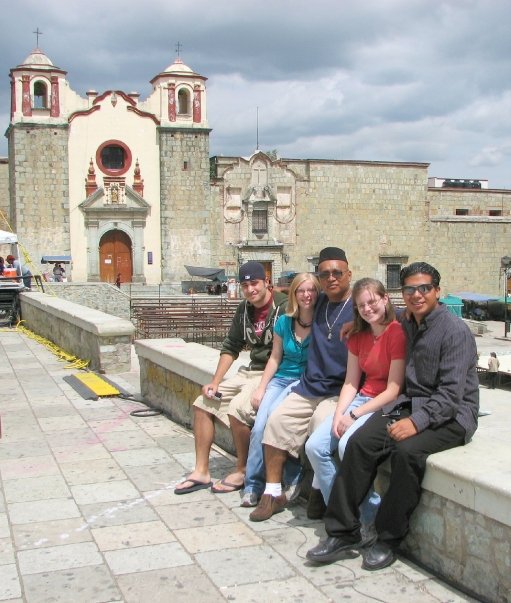
The schedule
Study abroad programs typically stick to a pretty rigid schedule. Try to find out everything you possibly can about the schedule such as:
- How long is the program?
- How many days a week you’re going to class or to work?
- How long those classes are?
- How heavy the workload will be?
How long is the program?
Study abroad programs can vary from a couple of weeks to up to a year or longer. In many cases though a typical study abroad program will last you a semester (or two summer semesters). If you have never been outside the country you might consider one of the shorter sessions which are only a summer semester or two.
However, if you truly want to get the most out of a study abroad experience I would advise to go for at least one long semester. You’ll just be able to see and do a lot more and get way more out of the experience. This is especially true if you’re trying to pick up a language.
Weekly schedule
The weekly schedule for study abroad programs can vary dramatically. The schedule might mirror what you would do in a lot of universities with the schedule going from Monday through Thursday or Monday through Friday.
Or it could be like the time when I did a study abroad in London and I only had class on Wednesdays. In many cases, you should be able to customize your schedule to a degree and you can do whatever you feel is most comfortable.
When choosing your weekly schedule you’ll need to know a lot about the transportation options and also the costs associated with those so that you can minimize your transportation costs. Also, consider how often you plan to travel. If you plan on getting out and doing a lot of traveling then you may want to double up your classes so that you only go to class a couple of days a week.
How long are the classes
If you’re an experienced college student you probably have experience with different types of classes that range from one hour to a couple of hours. Sometimes study abroad classes can have some long courses that you may not be accustomed to so just check to see how long you are expected to remain in class.
Also, many study abroad programs involve independent study work. So in some cases you may have to have good time management to complete a thesis or similar project.
The workload
You definitely need to know what you’re getting yourself into when it comes to the workload when studying abroad. Some students seek out study abroad program so that they can travel and explore a country or region as much as possible (guilty). In those cases, those students obviously are going to want lighter workloads (guilty, again).
But in some cases you might be headed to a country to do some serious work and you might prefer a workload that is more substantive. It might be difficult to get a straight answer on this from the study abroad program since a lot of programs don’t really want to admit that their program is kind of a joke (academically speaking).
So the best way to do this research is to reach out to former students who have gone through the program before and really ask them about the course workload. Many times there are Facebook groups or similar groups that you can find full of people that were doing the program in the years before.

Program size
Another big consideration is how big is the program? Basically, you want to have an idea of how many other students from the program that you are going to be accompanied with during your study abroad experience.
Some programs can be very small and consist of only one or two people while others can be much larger groups with students from all over. I like study abroad groups that consist of around 7 to 10 people because it gives you a good mix of people to bond with and it’s not so large that it becomes a logistical nightmare.
If you find yourself in a very small group then you can also look into reaching out to other study abroad groups and perhaps linking up. You might not be sharing classes with them but you still might be able to go with them on certain excursions and trips on the weekends, etc.
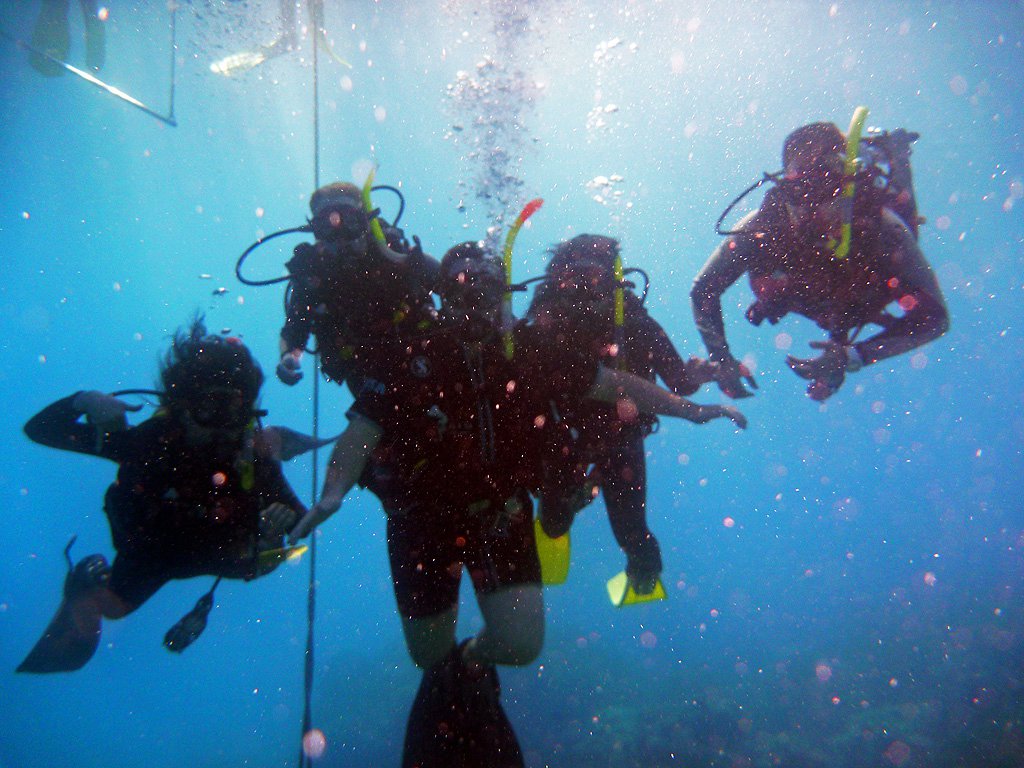
Choosing a location
Many colleges and universities will offer different locations for their study abroad programs. Trust me on this, you want to make sure that you are going to a destination where you will feel comfortable.
Here are some considerations about choosing a location:
- Will you be comfortable in the climate?
- Is the country and city you will be based and safe?
- Does the area have any special connection to the type of work you want to do?
- Will it be easy to get out and explore other destinations?
- How expensive is the cost-of-living?
Climate
If you are going to be venturing to a climate that you are not experienced with you should be prepared for a major adjustment. For example, moving to somewhere where it is going to be very cold can be quite a shock and make your life miserable if you don’t have any experience in a truly cold climate.
Not only that, but you will have the added expense of having to purchase things that you will need to wear such as thicker jackets, boots, gloves, beanies, etc. And then you will have less room in your suitcase which means you may be paying more in baggage fees.
Other situations you might want to avoid are going somewhere during the rainy season, hurricane season, etc. If you do decide to challenge the elements, just make sure you’re prepared.
Is it safe
You should always read what the latest warnings are by the US Department of State. You can read about how to interpret those ratings here. Basically, you don’t want to just look at whether or not a country is safe but you want to look at whether or not the specific city that you are going to be living in is safe and where the local Consulate is.
And beyond recommendations from the government, you want to also do some personal investigation for websites like Reddit, forums, and as as many blogs as possible. The program you are signing up with should be able to provide you with a lot of guidance on safety recommendations as well.
Almost every major city is going to have its sketchy parts so always be informed about were not to go. And of course, common sense goes a long way when it comes to avoiding getting mugged and robbed.
Special connection
In some cases the city that you will be living in may have a special connection to the type of work you want to do. For example, if you were trying to get into the international financial sector, places like London, Singapore, and Hong Kong would be a fantastic.
Other cities are known for being hubs for industries like energy or medicine, science, etc. And then of course there are the party hubs…. Study abroad in Ibiza anyone?
At locations with known industry hubs, you might be able to attend certain events or network with people that are leaders in the industry and those experiences and relationships might be able to take you very far in your career. You might even be able to pick up an internship or real job, so this should be a very important factor in the decision for those trying to get an edge with their career.
Exploring other destinations
One of my favorite things to do when studying abroad was to take breaks and explore other countries and cities. This is very easy to do in regions like Europe but much more difficult and expensive whenever staying in a place like Australia.
So you really want to consider how much exploring do you want to do and do you want to venture to other countries or will you be content with going in depth in the city or in a smaller region. Both approaches can be equally rewarding.
The cost-of-living
The cost of living is going to be a major consideration whenever you choose to go somewhere. This will likely most impact you when it comes to housing and for food. If you want to compare your cost of living where you currently live to where you are going to be you can use a tool like this.

Housing
You absolutely need to have your housing situation figured out before you ever depart on your study abroad trip. If you are going through a legitimate study abroad program they should help you to figure out your housing situation before you ever depart.
Tip: Use WalletFlo for all your credit card needs. It’s free and will help you optimize your rewards and savings!
Host family/home stay
Staying with a host family can be a fantastic way to actually learn a language when studying abroad. In fact, I would argue that if you are trying to pick up another language and you are not staying with a host family you are missing out on a lot.
The drawback to doing this is that you will be living with a family that you have no idea who they are. You might have limited privacy and it’s possible that the house that they offer might not be ideally suited to you. If you are committed to staying abroad for a very long time and that could be a major issue/borderline disaster.
But on the plus side, you will be able to create a close relationship with complete strangers. By the end of your study abroad, you will probably feel like a member of their family (if all things went well). And that is a really cool feeling.
Also, a lot of host families may even take care of most of your meals. When I did a study abroad in Oaxaca I stayed with a host family and my host family cooked breakfast and dinner every single day for me and I was able to enjoy local cuisine. They also took care of me when I wasn’t feeling too great. It truly was a fantastic experience.
- You can check Homestay.com for these opportunities.
Designated dormitories
Sometimes they may have designated dormitories or other facilities for you to use. This can be a fun way to interact and connect with other students. This could include students that are part of your program and also students with the local college or university. Food might even be included with some.
The drawback here would of course be the same potential drawback of staying in a dormitory in the US. For example, it is possible that the dorm may be small, you may have to share showers, bathrooms etc. So once again research is key.
Finding your own housing
Other times they may leave it up to you to choose where you would like to stay. This is great for people who are able to put the time in to find a good place. If you get lucky you might be able to find a great deal and you also might be able to find a prime location like a place right next to the beach or right next to your school or work.
The drawback here is that it could get quite expensive if you don’t find a bargain and also there is the risk of you getting scammed.
My advice would be to see where other members of your group are staying and try to stay with them or as close to them as possible. It’s also a good idea to get a roommate or two to cut down on costs.
You obviously want to factor in how close or far you will be from your school or from your job site. And then you want to figure out how the local transportation will work especially if you will be using public transportation. Remember each trip on the commute can add up.
One thing to think about when it comes to housing is what type of options you will have to cook your own food. Food can quickly add up as one of your most expensive purchases when studying abroad so if you are able to go and buy groceries and bring them back to your place and cook them you can start saving a lot of money. It is also just a fun experience to go out and explore grocery stores and other countries.
Tip: Don’t be opposed to staying in a hostel for your study abroad experience. They can be extremely economical and some can be pretty nice.

Financial aid
Financial aid for study abroad programs can come in many different forms. Many times, a program will offer a couple of grants or scholarships so you definitely want to apply for those even if you don’t think you have a great chance.
And then there are other scholarships that are specifically for study abroad so you want to look into those as well.
- College Board general scholarship search engine: Free online scholarship database.
- Diversity Abroad Scholarships & Grants: Free database of scholarships that target minority, low-income and first-generation students
- FastWeb: Free online scholarship database.
- IIEPassport Study Abroad Funding:Free online database of study abroad scholarships, fellowships, and grants.
- Scholarships.com: Free college scholarship search and financial aid information resource.
List courtesy NAFSA.
If you are not able to get any scholarships or grants then you might go to student loan route. This is not a bad route to go in the process for getting financial aid can be very similar to the process for getting it for your typical university. Just remember that you don’t have to accept all of the financial aid offered to you.
Student Discounts
When you are studying abroad there will be a lot of opportunities for you to save money based on your student status. At many establishments, you can get a discount just by showing your student ID. You might also think about getting the ISIC Card (International Student Identification Card) which allows you to get discounts and benefits in over 125,000 locations.
Here are some other discounts to consider:
Flights
Trains
- Many places like the UK may offer you a discount on train tickets or train passes if you are a student.
Dining
- With cards like the ISIC card, you can get discounts at many restaurants.
Activities
- With cards like the ISIC card, you can also get discounts on many activities like tours, museums, etc.
Travel insurance
When you are traveling abroad you want to consider getting good travel insurance. There are basically two different types of insurance you want to get.
The first and most important is medical insurance so that if you ever need to visit a doctor or emergency room you can have coverage. Many study abroad programs will require you to have this and a lot of colleges or universities may already have an insurance program that you can simply enroll in.
Here are some other programs to look into:
- ASA Inc
- Cultural Insurance Services International
- World Nomads Insurance
- International Student Protection
The second is travel insurance that allows you to get refunded whenever the unexpected happens such as whenever you have tickets canceled, baggage lost, etc. Sometimes you can get both of these different types of insurance coverages in one single package, but a great way to get these type of protections is to go with a good travel credit card.
Cell phones
It’s a very good idea to make sure that you will have cell phone service at all times when you are traveling abroad. You simply never know what type of unexpected situations that arise and having cell phone service at all times we’ll make you feel less stressed and your family will thank you for this well.
Check with your cell phone provider to see what your international data plan is. Some providers may allow you to go about using your phone as you normally would while abroad with some pretty reasonable pricing. Others will charge you an arm and a leg.
In some cases you may just go ahead and purchase a phone abroad and that might be the easier way to go. You can buy a cheap phone just to accomplish simple tasks like text and calling. Or you could get a smart phone that can do everything your normal smartphone can do. Personally, I would go for a phone that has maps and GPS because that will make your life so much easier.
In other cases, you may just want to purchase an international Sim card and then insert that into your phone while you are abroad. Your phone may need to be unlocked before this works so always look into that.
Studying abroad as an LGBT person
Studying abroad as an LGBT person or minority can present some challenges but also advantages. As a gay person, I found being in a foreign country to be the perfect time to begin the coming out process. The world is evolving fast on LGBT rights and many places will be more welcoming than you might expect.
At the same time, you should definitely do your research to make sure your destination has a good reputation for treating gay people right. A few Google searches can help you find LGBT friendly places but it never hurts to dig a little deeper on Reddit and other websites.
Here are some questions you might want to ask:
-
What is the tolerance level in the host country?
-
What laws govern the LGBTIQ community?
-
Are there norms and behavioral expectations?
-
What resources and support are available in my host country? In my host institution? With the program Study Center?
-
Are there tolerant establishments?
-
Are there any LGBTIQ newspapers, magazines, or local online resources available?
-
Is it safe for me to be “out” when I am abroad?
-
How open do I want to express my sexuality and gender identity while abroad?
-
Do I want to be open about my sexuality and/or gender identity with my host family, professors, local friends, or others that I meet?
-
Are topics related to sexual orientation and gender identity openly discussed or more taboo in my host country?
-
Will I be staying with a host family who may or may not be accepting of my gender or sexual identity?
Questions via UCEAP.
Getting the most out of your experience
There are several things you can do to make sure you get the most out of your study abroad experience.
- Stay on top of your finances
- Try to learn the language
- Continuously step out of your comfort zone
- Embrace the relationships
- Don’t be stupid
- Soak up every second
Stay on top of your money
It can be really easy to lose track of your expenses when you’re studying abroad. Sometimes it has to do with the conversion rates, or just being out of your element but make sure that you stay on top of your money situation. If possible, try to work out the situation with your University where you can pay for your expenses like housing upfront so that you don’t have that money to potentially squander down the road.
Be strategic about pulling out money from banks and ATMs since you might be getting hit with the additional fees and conversion rate fees. Also, it is a very good idea to have a credit card with you just in case you needed for emergencies.
Learn the language
If you are traveling to another country that speaks a different language then even if you are not focused on learning that language you absolutely should try to learn a lot about the language. Being immersed in a culture is by far the easiest method for picking up the language and you will seriously regret it if you don’t at least try to give it a shot.
Comfort zone
When I did a study abroad in Australia I really made a lot of breakthroughs in life. It had to do with a lot of factors but mostly it had to do with me choosing to step out of my comfort zone on a daily basis. In the end, it culminated with me doing things that I never thought I would ever do like scuba diving and even skydiving.
Doing those things showed me that I was capable of pushing past my fears and worries and capable of accomplishing things that I never envisioned for myself. It’s absolutely was a life lesson as cliché as it sounds.
Relationships
If you are doing a study abroad program with a group, there is a great chance for you to create relationships. This could be relationships with friends or who knows you may even create a romantic relationship (I’ve seen it happen myself).
At the same time, you need to be careful about your existing relationships and how studying abroad might affect them. I’ve seen study abroad experiences become the catalyst for a break up. So it’s a good idea to make sure that you and your partner at the time are on the same terms before you depart for your study abroad.
Don’t be stupid
I’ve seen a lot of things happen while studying abroad. Some of the events are on the crazier side of things like bribing cops so that they don’t get locked up abroad and other times it was a little bit less dramatic. Make sure that you don’t do anything that you are going to regret, especially if you’re traveling to a destination that has a zero tolerance policy.
Soak up every second
Depending on where life takes you, it’s possible that your study abroad experience can be one of the only times that you are able to get out and travel in that fashion. Many people get tied up in their careers or their family and are just not able to ever get back out and explore a country for weeks or months at a time.
Maybe you’ll end up becoming a travel blogger or some other career focused with travel but chances are that it may not happen and so you absolutely need to soak up every second of your experience.
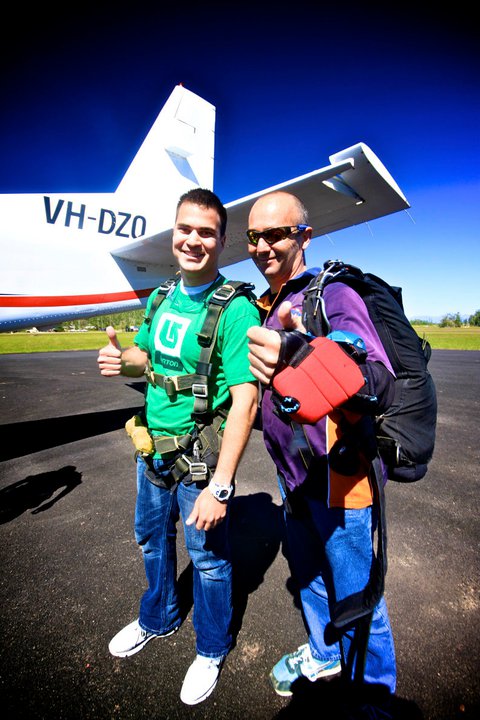
Final word
Doing a study abroad is absolutely a way to change your life. The experiences, relationships, and just the general feeling of accomplishment that studying abroad allows you to experience is something invaluable. Hopefully, this guide will help you to make the most out of your experience and you will have an unforgettable time.
Daniel Gillaspia is the Founder of UponArriving.com and the credit card app, WalletFlo. He is a former attorney turned travel expert covering destinations along with TSA, airline, and hotel policies. Since 2014, his content has been featured in publications such as National Geographic, Smithsonian Magazine, and CNBC. Read my bio.

